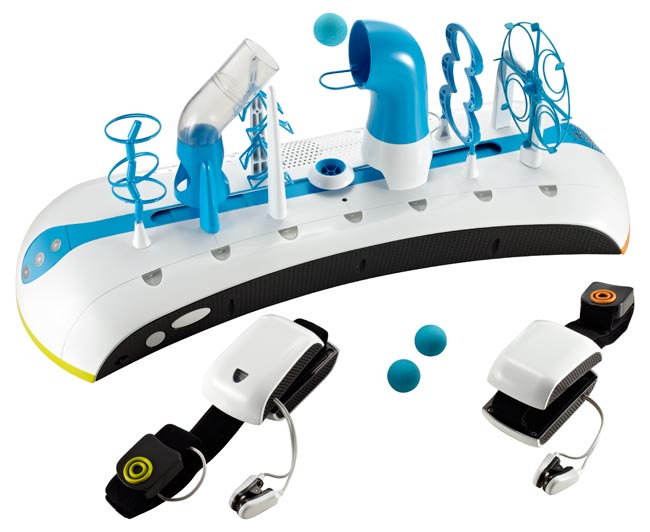Brainwave Control Toys Move Forward
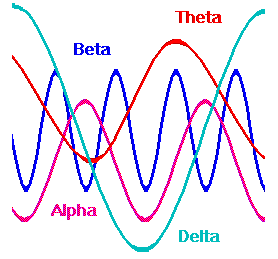 Learning to control your brainwaves through concentration, relaxation, visualization, meditation and other techniques is a cornerstone for peak cognitive performance. Learning to control your brainwave is often difficult because you don’t have direct and immediate feedback on what state you are in. Neurofeedback devices that display information about brain states in real-time solve that problem. The devices work on a brain-to-computer interface and have recently move into the consumer market.
Learning to control your brainwaves through concentration, relaxation, visualization, meditation and other techniques is a cornerstone for peak cognitive performance. Learning to control your brainwave is often difficult because you don’t have direct and immediate feedback on what state you are in. Neurofeedback devices that display information about brain states in real-time solve that problem. The devices work on a brain-to-computer interface and have recently move into the consumer market.
You can get simple models for home use and they have been built into games.
Neurofeedback offers one of the best hopes for a breakthrough in brain training and peak cognitive performance.
So I am always on the look out for new consumer-level neurofeedback devices that might be of interest to readers of the Next Brain Brain blog. Mattel has announced a new version of their Mindflex mental acuity game, call Mindflex Duel: The cost is $99. Here is the short story:
“Using advanced technology, Mindflex Duel headsets sense brain activity and send messages to the game platform. Strap on a headset, connect the sensor clip to your earlobe, and align the strap’s metal sensor so it’s flush against your forehead. Your brain activity will trigger the game platform’s motors, which will propel the ball. Bulk up your brain, sharpen your focus, and battle your friends with this hands-free challenge!”
Being able to do neurofeedback in a competitive mode could be a big step forward in using the technology for brain training.
Very interested to hear from readers that use home-based neurofeedback to improve brain function and achieve peak cognitive performance.
Categories: Executive Function, Mental Focus, Software Tags: games, neurofeeback
Warm Up Your Mood to Boost Creativity
 Warming up is clearly important for safety and high performance in physical activities and competitive sports. The same is true for mental activity and cognitive sports.
Warming up is clearly important for safety and high performance in physical activities and competitive sports. The same is true for mental activity and cognitive sports.
In an earlier post we discussed how having a friendly social conversation for 10 minutes to warm up your brain will improve cognitive performance. Now CNN Health reports on two recent studies that show humor or positive mood can improve creativity and puzzle solving ability.
More specifically, one study found that watching YouTube videos that put you in a good mode (watching a happy baby) increases your ability to learn a rule to categorize a problem.
This suggests simple mood elevating techniques can warm up your brain and improve cognitive performance. Need to be creative? Take time out to laugh.
Source: Happy Baby Image
Categories: Lifestyle, Problem Solving Tags: creativity
Does Emotional Intelligence Peak in Your 60s?
 Emotional intelligence is our ability to spot, manage and generate emotions in ourselves and others. It appears to correlate better to life success than IQ. Emotional intelligence is not taught in school, it is learned (by some) through life experience. So it should be no surprise that it should improve as we age.
Emotional intelligence is our ability to spot, manage and generate emotions in ourselves and others. It appears to correlate better to life success than IQ. Emotional intelligence is not taught in school, it is learned (by some) through life experience. So it should be no surprise that it should improve as we age.
According to recent research from the University of California at Berkley, some aspects of emotional intelligence appear to peak in our 60s. These include:
- Effective use of positive reappraisal (seeing the bright side of things) to reinterpret negative situations in a positive way.
- Sensitivity to sadness or the ability to empathize with those feeling sad.
These are important findings as they help to further dispel the myth of universal cognitive decline with age. Understanding which aspects of cognitive performance naturally improve as we age should shape our approach to brain fitness.
Interested to hear from readers that have noticed improvements in Emotional Intelligence in older adults.
Categories: IQ and EQ, Lifestyle, Manage Emotions, Older Adult Tags: emotion, EQ
Action Video Games Work Mental Muscles Big Time
 Multiple experiments done by Daphne Bavelier, professor of brain and cognitive sciences and her group at the University of Rochester, strongly suggest that action video games improve perception (speed and accuracy), attention (including multi-tasking), decision-making and other aspects of cognition.
Multiple experiments done by Daphne Bavelier, professor of brain and cognitive sciences and her group at the University of Rochester, strongly suggest that action video games improve perception (speed and accuracy), attention (including multi-tasking), decision-making and other aspects of cognition.
That is an amazing workout for the brain especially if you are getting it by having fun. The key is to play a game that is first-person and includes a lots of action or visual-motor coordination. My favorites are Geometry Wars and Soul Caliber 4.
Interested to hear from readers that play action video games. Which games do your play? Can you feel them working your mental muscles?
Categories: Decision Making, Memory and Learning, Mental Focus, Perception, Software Tags: brain training, games
Warming Up Your Brain Improves Performance
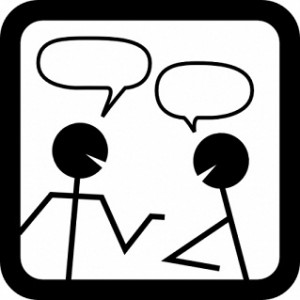 Want to improve your ability to solve a problem, take a test, deliver a presentation or perform some other cognitive task? Make sure you stimulate your brain by having a friendly social conversation before taking on the task. According to researchers at the University of Michigan, this friendly-chat brain boosting technique works well because:
Want to improve your ability to solve a problem, take a test, deliver a presentation or perform some other cognitive task? Make sure you stimulate your brain by having a friendly social conversation before taking on the task. According to researchers at the University of Michigan, this friendly-chat brain boosting technique works well because:
“… some social interactions induce people to try to read others’ minds and take their perspectives on things,” Ybarra said.”
A 10-minute “get to know you” conversation produces the effect. The researchers warn that the effect does not work if the conversation has a competitive tone.
Interested to hear from readers on what else we can do to “warm up” our brains before a cognitive performance.
Categories: Lifestyle, Memory and Learning, Problem Solving Tags:
Does Teasing Your Brain Make it Stronger?
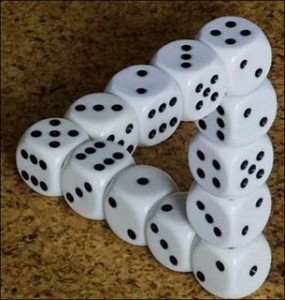 There is some evidence that we can enhance our brain function and cognitive performance by regularly solving puzzles, problems, riddles or games that tease our brain. Teasing means presenting some enjoyable mental challenge that is not too easy but not too hard.
There is some evidence that we can enhance our brain function and cognitive performance by regularly solving puzzles, problems, riddles or games that tease our brain. Teasing means presenting some enjoyable mental challenge that is not too easy but not too hard.
Classic crossword puzzles and the more recent Sudoka number-pattern puzzles are popular brain teasers. Some people love them others find them boring.
The key is to find the type of brain teaser you enjoy and enjoy it regularly.
If you have not discovered your inner brain teaser, or are shopping for new ones (always a good idea), check out Top 10 Brain Teasers and Games for Adults and Kids from Sharpbrains. You are sure to find something you like. If you do, the next challenge is find a steady supply of similar challenges.
Very interested to hear from readers that enjoy brain teasers. How do they enhance cognitive function?
Image Source: Fanpop!
Categories: Cognitive Decline, Lifestyle, Mental Focus, Perception, Problem Solving Tags: games
Small Direct Current Boosts Brain Function
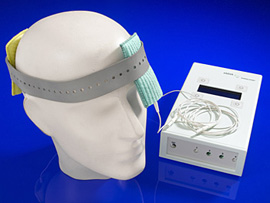 A recent study conducted at Oxford University on the use of transcranial direct current stimulation (tDCS) to improve math skills is getting considerable attention. A small group of college students received a tiny direct current to the parietal lobe for 20 minutes per day for six days. They showed a significant improvement in numerical ability (representation of artificial numeric symbols) that persisted for as long as six months.
A recent study conducted at Oxford University on the use of transcranial direct current stimulation (tDCS) to improve math skills is getting considerable attention. A small group of college students received a tiny direct current to the parietal lobe for 20 minutes per day for six days. They showed a significant improvement in numerical ability (representation of artificial numeric symbols) that persisted for as long as six months.
I have seen other studies that claim tDCS can improve creativity, declarative memory, visual memory, motor skills and pain relief as well as speed stroke recovery.
I am not aware of any devices and training protocols available to the general public. Interested to hear from readers that use tDCS.
Categories: Memory and Learning, Sleep Tags:
Jump Two Reading Grade Levels in 8 Weeks
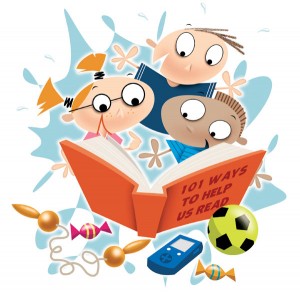 I receive emails from parents asking about brain training for their children. Improving kid’s brain function and cognitive performance, especially in school is a very active area. It is covered regularly on the Next Brain Blog. You can check out what has already been posted by going to the categories pull down menu (to the right) and selecting Child or Student under the Life Stage or Vocation category.
I receive emails from parents asking about brain training for their children. Improving kid’s brain function and cognitive performance, especially in school is a very active area. It is covered regularly on the Next Brain Blog. You can check out what has already been posted by going to the categories pull down menu (to the right) and selecting Child or Student under the Life Stage or Vocation category.
One of the most exciting and scientifically robust options parents have for boosting the brain power of their children are the products provided by Scientific Learning (I have no affiliation). They apply brain fitness techniques to improve reading and language comprehension skills in K-12. They have good evidence to claim that they can:
Improve the reading level of students by two grades even if the student is already performing at an advanced level.
Parents can rent the program here for about $200.
Interested to hear from readers that have experience with brain fitness products from Scientific Learning.
Categories: Child, Memory and Learning, Software Tags: speed reading
Beet Juice as Brain Food For Older Adults
 A study from Wake Forest University demonstrates for the first time that drinking beet juice (about 16 ounces a day for a week) increases blood flow to the brain in older adults. More specifically:
A study from Wake Forest University demonstrates for the first time that drinking beet juice (about 16 ounces a day for a week) increases blood flow to the brain in older adults. More specifically:
“The MRIs showed that after eating a high-nitrate diet, the older adults had increased blood flow to the white matter of the frontal lobes – the areas of the brain commonly associated with degeneration that leads to dementia and other cognitive conditions.”
Brains scans such as MRIs provide strong evidence. Beets are one food source high in nitrates others include celery, spinach and cabbage.
Interested to hear from readers that use beet juice or other high-nitrate food stuffs as part of their next brain diet.
Categories: Cognitive Decline, Diet, Memory and Learning, Older Adult Tags:
Light Sleep Enough to Integrate New Memories
In the Next Brain Blog we review techniques that are proven to enhance brain function and cognitive performance. Sometimes the techniques are mundane such as proper nutrition, aerobic exercises and sleep. But even when they are mundane we search for the twists or specifics that can transform the obvious into a unique insight or practice.
Take sleep for example. Earlier posts discussed how dreaming can improve responses to a maze navigation problem by a factor of 10, how you can focus your dreaming to solve problems using a specific 5 -step method and the specifics (duration, location, use of caffeine) for catnaps that have brain boosting effects. What this tell us is that even though a technique is ordinary, there is an art to using it to improve brain function and cognitive performance.
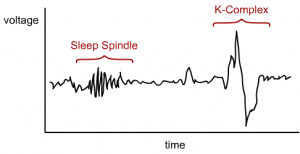 A new article in the Journal of Neuroscience illustrates this point. Sleep Spindle Activity is Associated With the Integration of New Memories and Existing Knowledge demonstrates that subjects that reach at least stage two sleep have deeper learning of new vocabulary than those subjects that don’t sleep. A sleep spindle is a special form (burst) of brainwave that represents onset of stage two sleep. This is about half the time we are asleep when we are not in REM. Stage two is a period of light sleeping.
A new article in the Journal of Neuroscience illustrates this point. Sleep Spindle Activity is Associated With the Integration of New Memories and Existing Knowledge demonstrates that subjects that reach at least stage two sleep have deeper learning of new vocabulary than those subjects that don’t sleep. A sleep spindle is a special form (burst) of brainwave that represents onset of stage two sleep. This is about half the time we are asleep when we are not in REM. Stage two is a period of light sleeping.
Bottom line – a light sleep is enough to get our thoughts together and associate new words with existing knowledge to deepen learning.
Categories: Memory and Learning, Sleep Tags:

